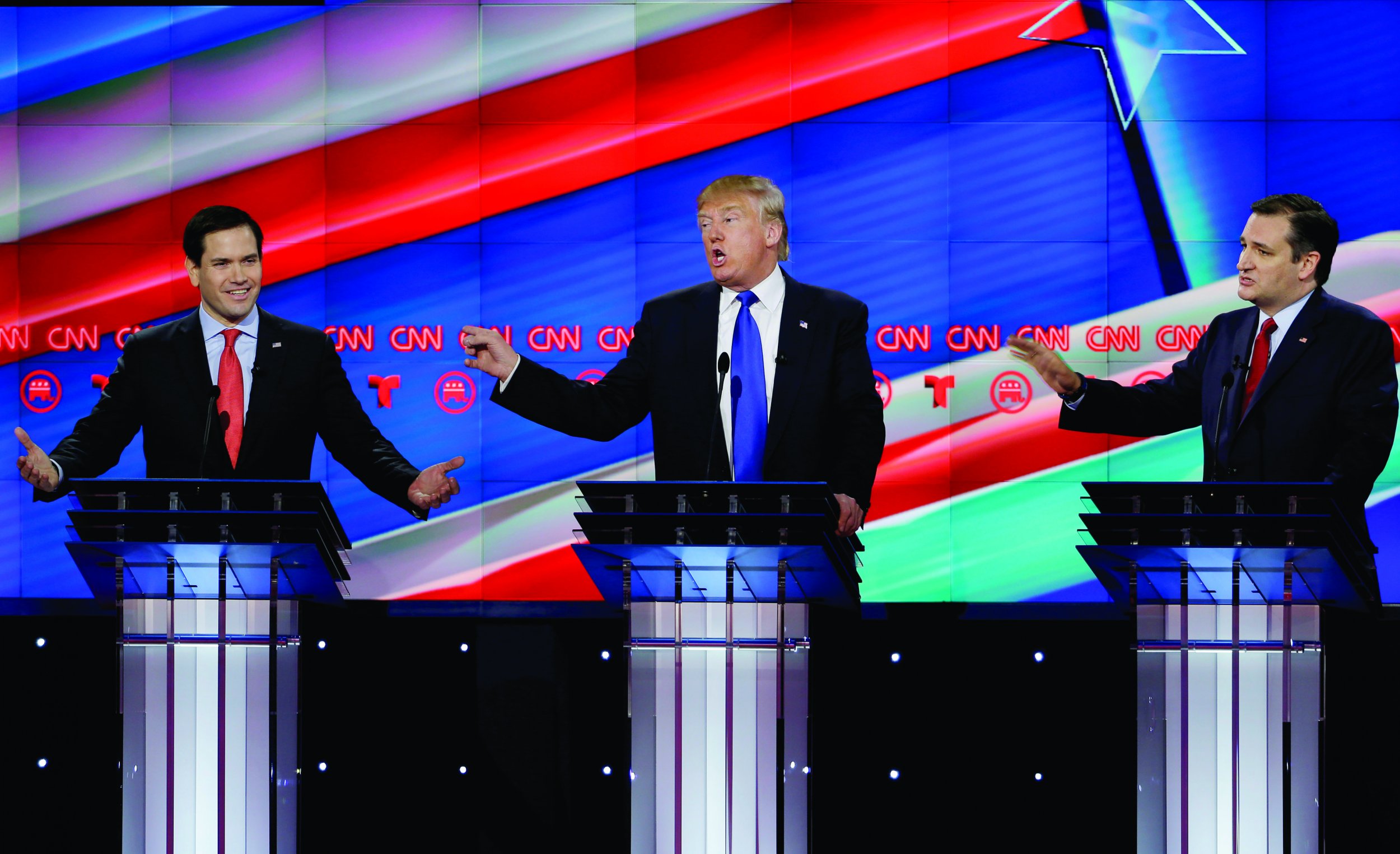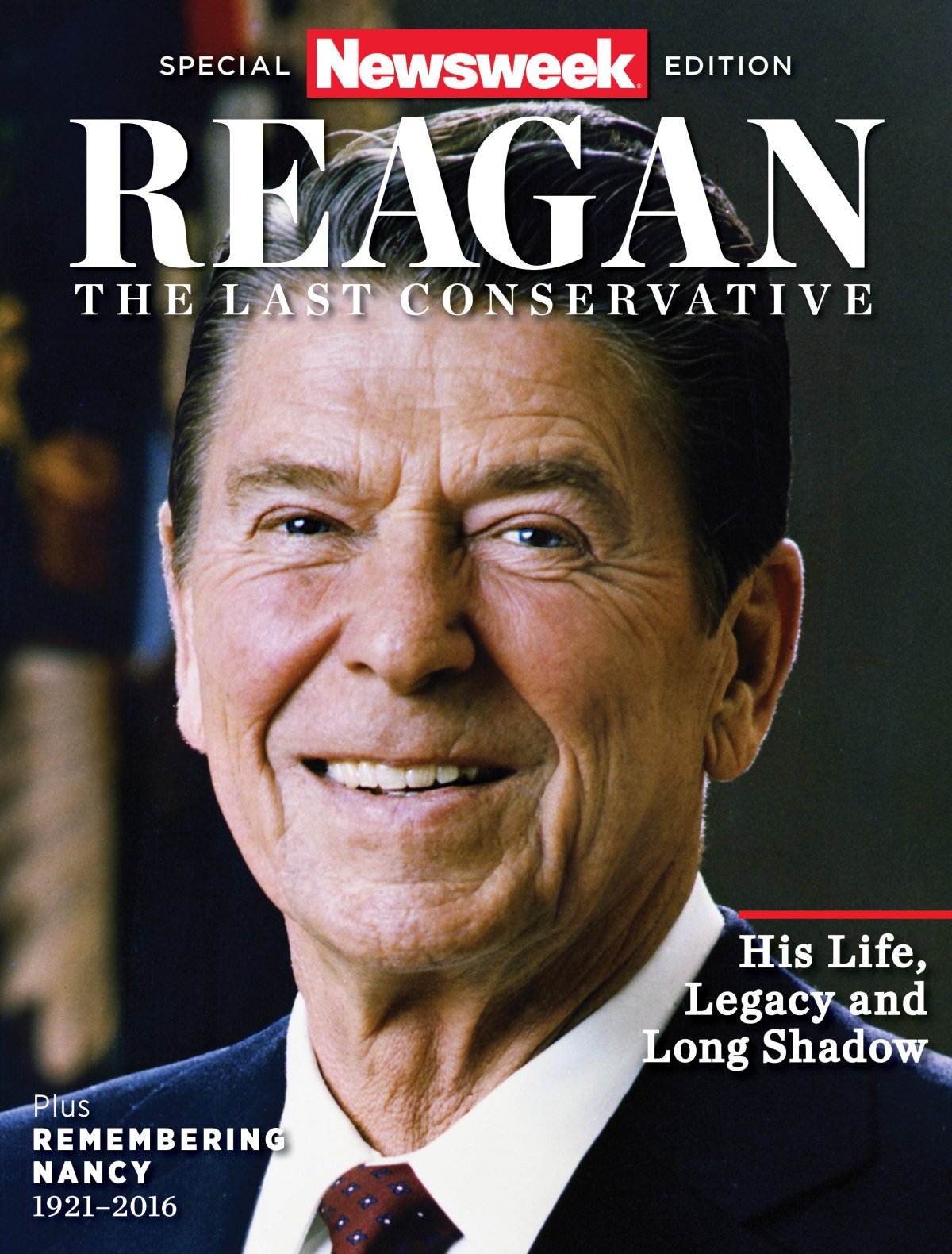
In a new special edition, Newsweek honors the life, legacy and long shadow of former President Ronald Reagan. This following article is excerpted from the May 9, 2010, issue of Newsweek. For more on Reagan's legacy, pick up a copy of Reagan: The Last Conservative.
Republicans nationwide seem to have given up on the whole governing thing and chosen instead to play a long, rancorous game of "I'm More Conservative Than You Are." In 2009, the Republican National Committee (RNC) even toyed with the idea of imposing a purity test on potential GOP candidates. Comply with eight of the party's 10 "Reaganite" principles, the thinking went, and you're worthy of funding. Fall short, and you might as well be Leon Trotsky.
Conservatives would claim that the Republican Party can only regain power by "returning to its roots" and banishing heretics. But a funny thing happened on the way to winning national elections again: The GOP has drifted so far right that it has retroactively disqualified the only Republicans since 1960 who've actually managed to, you know, win national elections. Based on their public statements, policy proposals and accomplishments while in office, not even Ronald Reagan would come close to satisfying the Republican base if he were seeking election today. The point is not that Reagan was a liberal. It's that the GOP is at risk of becoming so dogmatic that it would exclude even its most iconic member.
[RELATED: Reagan's Daughter: Dad Would Be 'Appalled' by GOP Today]
Here's how Reagan would fall short of the test some of his party's members wanted to impose on potential candidates.
FISCAL POLICY
The RNC based its purity test on Ronald Reagan's "principles"—chief among them a belief in "smaller government, smaller national debt, lower deficits and lower taxes." But although the Gipper slashed taxes dramatically during his first year in office, the rest of his fiscal record directly violated the very rules the RNC created in his honor. During the Reagan years, federal employment grew by more than 60,000 (in contrast, government payrolls shrunk by 373,000 during Bill Clinton's presidency). The gap between the amount of money the federal government took in and the amount it spent nearly tripled. The national debt soared from $700 billion to $3 trillion, and the U.S. transformed from the world's largest international creditor to its largest debtor. After 1981, Reagan raised taxes nearly every year: 1982, 1983, 1984 and 1986. The 1983 payroll tax hike even helped fund Medicare and Social Security—or, in terms today's Tea Partiers might recognize, "government-run health care" and "socialism."
DOMESTIC POLICY
Were it enacted, the RNC's Ronald Reagan purity test would've also put Reagan in the crosshairs for a number of his signature domestic policies. Oppose "Obama-style, government-run health care"? As governor of California, Reagan nurtured and eventually expanded Medi-Cal, the nation's largest Medicaid program. Support "market-based energy reforms"? In California, Reagan established the Air Resources Board to intervene in the market and fight smog; as president, he signed more wilderness-protections laws than any president before or since. Oppose "amnesty for illegal immigrants"? In 1986, Reagan passed the Immigration Reform and Control Act, which eventually granted amnesty to 2.7 million illegal immigrants, and he continued to speak out for immigration rights after leaving office. Support "the right to keep and bear arms by opposing government restrictions on gun ownership"? Actually, Reagan was a staunch backer of the Brady Bill, urging Congress in 1991 to "enact it without further delay." To win the RNC's blessing, according to the purity test, a candidate would've had to support eight of 10 so-called Reaganite principles. But Reagan himself wouldn't have come close.

FOREIGN POLICY
Foreign policy is where Reagan seems safest, at least at first glance. But despite his Cold Warrior bona fides, the Gipper still would've had a tough time pleasing today's conservatives. For starters, he refused to send more troops to the region when Hezbollah murdered 243 U.S. servicemen in Beirut in 1983, choosing instead to immediately withdraw the Marines remaining in Lebanon. Now that would be a violation of the RNC resolution requiring candidates to back "military-recommended troop surges" in the Middle East. And in 1981, Reagan condemned Israel's preventive strike on an Iraqi nuclear reactor, which doesn't jibe with the RNC's demand to "[support] effective action to eliminate th[e] nuclear weapons threat" in North Korea and Iran. Sure, Reagan may have ended the Cold War and all. But would it have been enough to win the Iowa caucuses?
SOCIAL VIEWS
Reagan was born in 1911, and his social views were largely in line with midcentury norms. But compared with other conservatives—especially the evangelicals who helped elect him and still dominate the GOP base—his record on social issues while in office was remarkably undogmatic, especially for his time. In 1967, he signed a law in California that legalized millions of abortions. In 1978, he opposed California's Proposition 6 ballot initiative, which would've barred gay men and women from working in public schools, and risked what his advisers predicted would be political suicide in taking to the airwaves to denounce it. Later, Reagan would become the first president to host an openly gay couple overnight at the White House. In 1981, he defied Jerry Falwell and other evangelical leaders by nominating Sandra Day O'Connor to the Supreme Court. A moderate, she would go on, along with one of Reagan's other nominees, Anthony Kennedy, to vote to uphold Roe v. Wade. As political commentator Peter Beinart has put it: "Turns out this Reagan guy wasn't really that Reaganite after all."
This article was excerpted from the Newsweek special edition Reagan: The Last Conservative by Issue Editor James Ellis. For more about the life, legacy and long shadow of President Ronald Reagan, pick up a copy today.

Uncommon Knowledge
Newsweek is committed to challenging conventional wisdom and finding connections in the search for common ground.
Newsweek is committed to challenging conventional wisdom and finding connections in the search for common ground.





